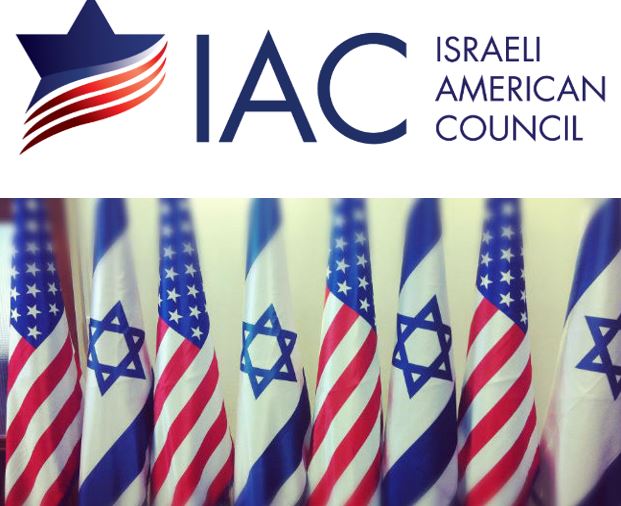Source: Jewish Journal
On the evening of March 1, just before a private Israeli-American Council (IAC) event for college students at the American Israel Public Affairs Committee (AIPAC) conference in Washington, D.C., it was difficult for two of IAC’s co-founders, Shawn Evenhaim and Adam Milstein, to walk more than a few feet without being approached by attendees.
Some thanked them for their support (both Milstein’s family foundation and the IAC have helped sponsor many students’ trips to AIPAC), others sought advice on Israel advocacy and on their careers, while the rest seemed simply to want to talk.
The post-dinner gathering was an opportunity for various pro-Israel campus activists from across the nation not only to meet one another and share tactics and vision, but also to hear from a few Capitol Hill lawmakers and the Pulitzer Prize-winning Wall Street Journal columnist Bret Stephens.
Coming less than four months after IAC’s big November inaugural conference just a few miles away, and two days after Milstein and Evenhaim announced that the IAC had decided to launch a Washington, D.C., chapter (its eighth nationally), the message was clear: IAC — the largest, if not the only, national educational group in the nation geared toward Israeli Americans — is entering the Beltway and plans to put some of its resources toward creating a federal advocacy arm.
In a March 2 interview at the 12th-floor M Club at the Marriott adjoining AIPAC’s conference center in downtown Washington, Milstein and Evenhaim said IAC’s D.C.-area branch will play two roles.
First, like its branches in other cities — including ones in Los Angeles, Las Vegas and Boston — the D.C. branch will serve as an educational, religious and cultural resource for Israeli Americans in the area. The group says it has reached about 150,000 people through this programming, and its state branches already work with state and local officials on a range of issues.
Second, the D.C. office will be an advocacy arm for Israeli-American interests on Capitol Hill. Evenhaim, the group’s chairman, said IAC’s advocacy activities in Washington will not constitute lobbying. Without elaborating, Milstein and Evenhaim referred to visa laws and education as two issues that particularly concern the nation’s Israeli-American community, which, IAC says on its website, numbers more than 500,000 people.
“Our target is much wider than Congress,” Milstein said, emphasizing that the D.C. branch will be more than just a policy arm for domestic issues important to Israeli Americans. “We feel that we have the natural knowledge to be the ambassadors for Israel.”
And that’s where AIPAC came in. IAC sees its membership as assets for AIPAC, and Israeli Americans who are at AIPAC as assets for IAC. Even when IAC got its start as the Israeli Leadership Council — a group of Israeli-born businessmen formed the group in Los Angeles in 2007 and it was officially renamed the IAC in 2013 — the mission was to bring delegations and sponsor student trips to Washington.
At the March 1 evening event for Mishelanu, IAC’s on-campus arm, pro-Israel college students took the stage one after the other, discussing the challenges they face defending Israel on campus and learning from one another’s successes. Two of the speakers were Jewish students from UC Davis who had successfully appealed to that school’s student judiciary to overturn a recently passed Boycott, Divestment and Sanctions (BDS) bill, on the grounds that it was primarily political and thus violated the student senate’s obligation to focus on student welfare.
And perhaps most exciting for the students Sunday night — and a second early indicator of IAC’s networking abilities on Capitol Hill — Congressmembers Ted Deutch (D-Fla.), Brad Sherman (D-Calif.) and Ed Royce (R-Calif.) stopped by to give remarks.
“I’m here tonight because of the efforts of this organization to rally Israeli Americans and Jewish Americans to support this incredibly decisive effort to stand up on the university campuses,” Royce said.
At IAC’s inaugural conference in November, some of the group’s draws included former Republican presidential candidate Mitt Romney, Sens. Lindsey Graham (R-S.C.) and Robert Menendez (D-N.J.), Israeli Ambassador to the United States Ron Dermer, and billionaire rival political kingmakers Haim Saban and Sheldon Adelson, who are both major supporters.
Asked what he anticipates will be the balance in the D.C. branch between its normal work within that region’s Israeli-American community and its advocacy efforts in Washington, Evenhaim didn’t offer specifics but said it will operate similarly to how IAC’s other offices operate.
Evenhaim anticipates the D.C. branch to be “fully operational” within three months.

